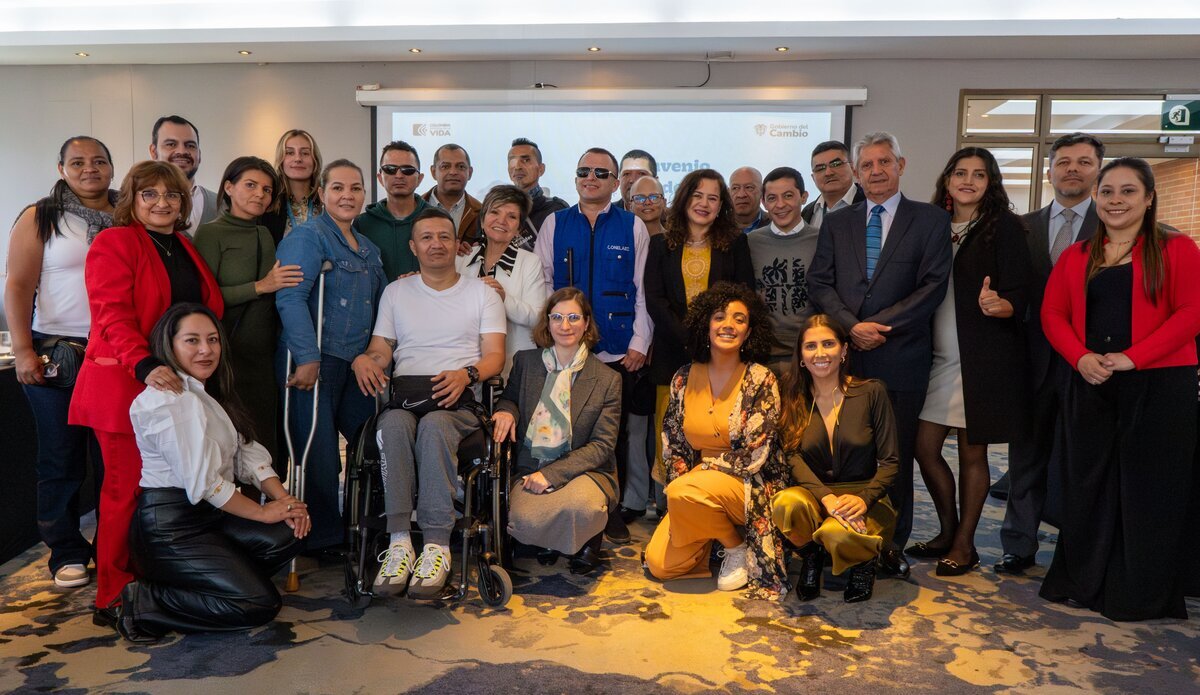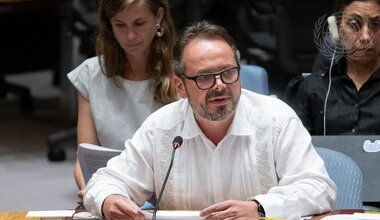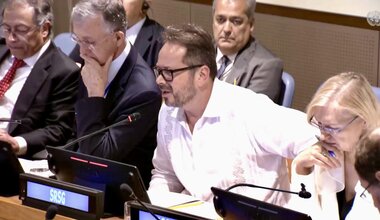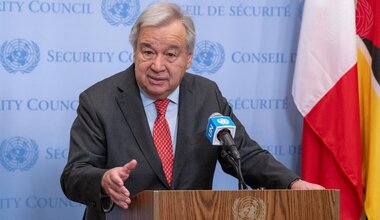Disabled peace signatories applaud the signing of an agreement that addresses their differential needs
The agreement will benefit about 1,280 peace signatories, who count for about 70% of the 1,884 people in the process of reintegration who recognize themselves as disabled.
A framework agreement signed this Monday, 20 May, between the Ministry of Health, the Ministry of Defense, the "Colombia en Paz" Fund, on behalf of the Peace Agreement Implementation Unit, and the Agency for Reintegration and Normalization (ARN), aims to ensure that peace signatories and conflict victims with war-related disabilities receive comprehensive healthcare. This includes rehabilitation, prostheses, advanced medical procedures, surgeries, and related health expenses.
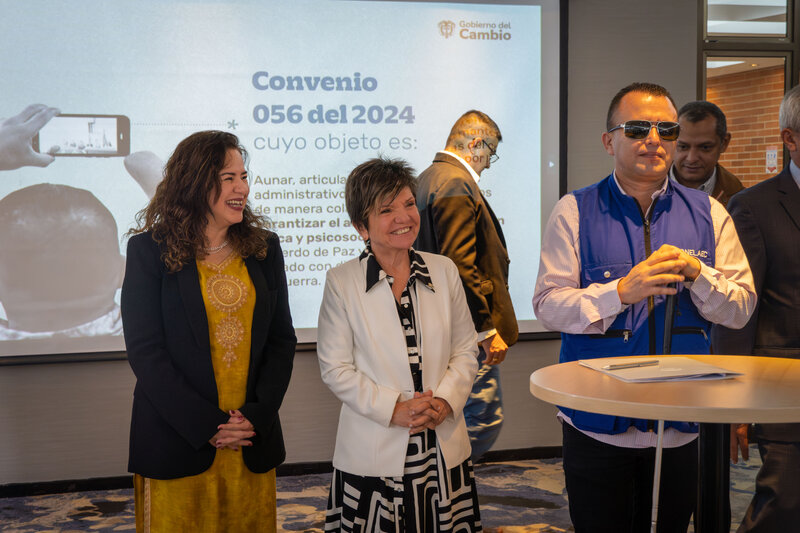
Alejandra Miller, director of the ARN; Gloria Cuartas, director of the Peace Agreement Implementation Unit, and Andres Felipe Ríos, president of Asoconelaec.
For Gloria Cuartas, director of the Peace Agreement Implementation Unit, the first phase of this initiative will guarantee the right to health in conditions of dignity and with a differential approach to signatories with disabilities, who face enormous challenges and difficulties due to stigmatization and discrimination. Similarly, Alejandra Miller, director of ARN, highlighted the challenges that peace signatories with disabilities face in their reintegration process.
This was ratified by six signatories of the Peace Agreement with disabilities who attended the signing and are part of the National Committee Association of War-Wounded Ex-combatants, Elderly and High-Cost Patients, ASOCONELAEC, which brings together 1,355 signatories and participated in the background process of this agreement.
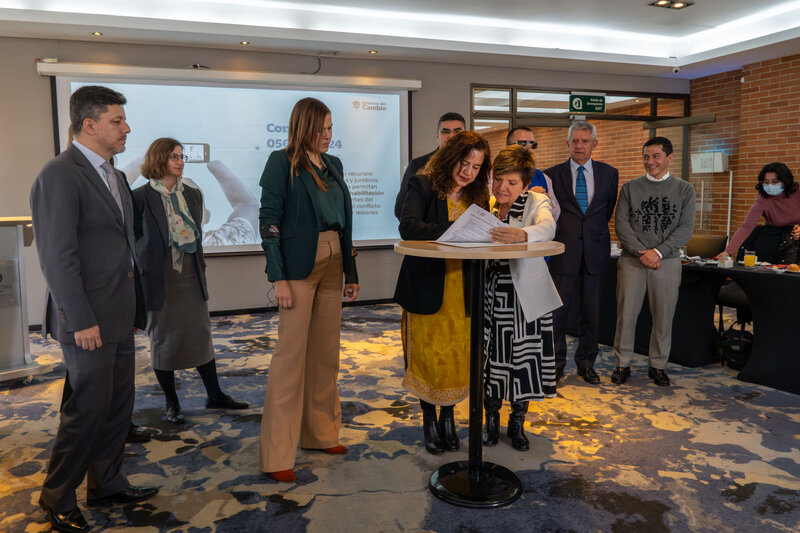
Andrés Felipe Ríos Giraldo is its president and a signatory with a visual disability. He acknowledges that four years ago, when the association was founded, this agreement was a utopia, “and that is precisely why we created this association, because there were shortcomings, and we were not being taken into account.”
Overcoming barriers to healthcare
"It's about overcoming barriers to healthcare," adds Wilmar Giraldo, also a peace signatory with a visual disability. "I have personally felt those barriers. We believe that, as peace signatories, we are considered people with limited rights, with less rights than the rest of society."
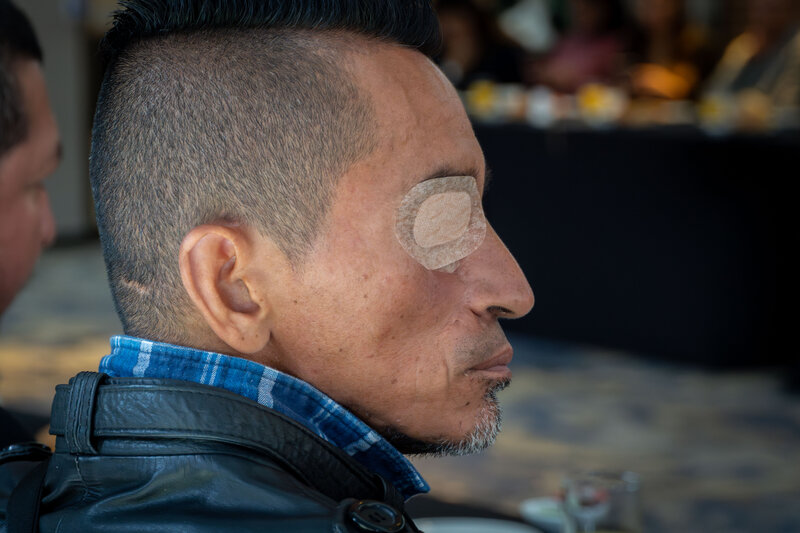
Wilmar Giraldo, peace signatory.
Camila Andrea García, a peace signatory from Meta, who lost one of her legs in 2009, argues that, while peace signatories in general are stigmatized, "imagine what happens to those of us who are disabled or female signatories, victims of mines, mothers who are heads of household and that cannot access a job."
Resilience
Resilience has defined these women and men who have worked for their voices to be considered and thus access differential healthcare, achieve a dignified life, and contribute to peacebuilding in their territories.
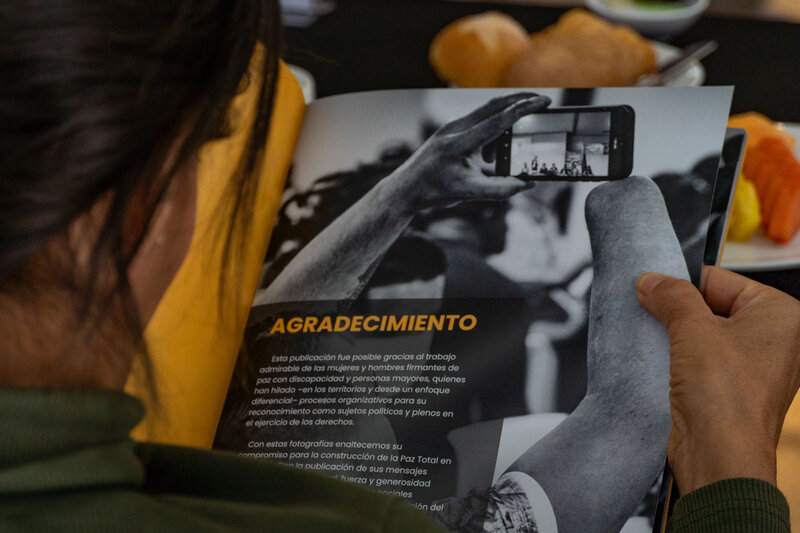
Laurie Leandri of the Reintegration Office of the United Nations Verification Mission publicly highlighted the leadership of ASOCONELAEC and its members, who have tirelessly reiterated that "without the inclusion and participation of signatories with disabilities, there can be no comprehensive and sustainable reintegration and real projection of dignified futures for people, their groups, families and caregivers."
For the UN Mission, this agreement is a powerful symbol of reconciliation for Colombia since it embodies inclusion, closes gaps to access rights, and prioritizes the elimination of stigmas within the framework of the Peace Agreement’s implementation and institutional services.
Arquímedes Celada Taborda, a 39-year-old peace signatory, believes that this may be his chance to regain the vision in one of his eyes that he lost, as Andrés Felipe, to anti-personnel mines shards. Arquímedes also lost both of his hands and needs prostheses. Now, he says, "My dream is to study, and that is why it is so important that this agreement becomes a reality, not only for me but for the entire signatory population of the Agreement."
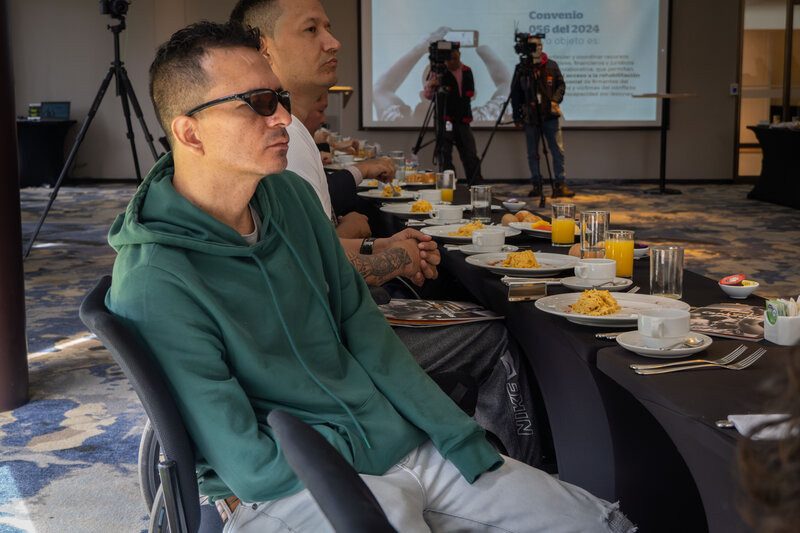
Arquímedes Celada Taborda, peace signatory,
Providing differential healthcare for people with disabilities strengthens the reintegration process for peace signatories, enabling their full contribution to society.
***
By Jorge Quintero
Publica Information Officer
UN Verification Mission in Colombia
 UN
UN
